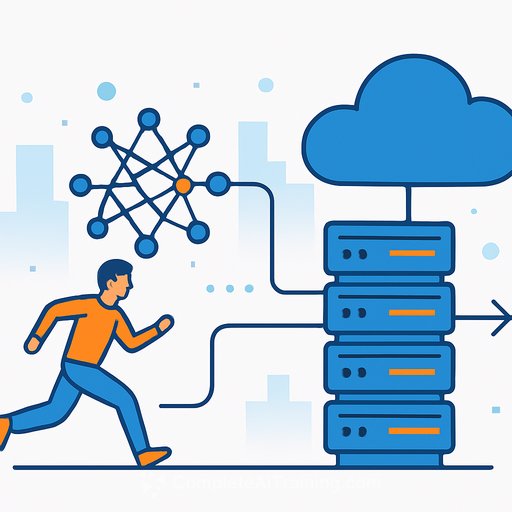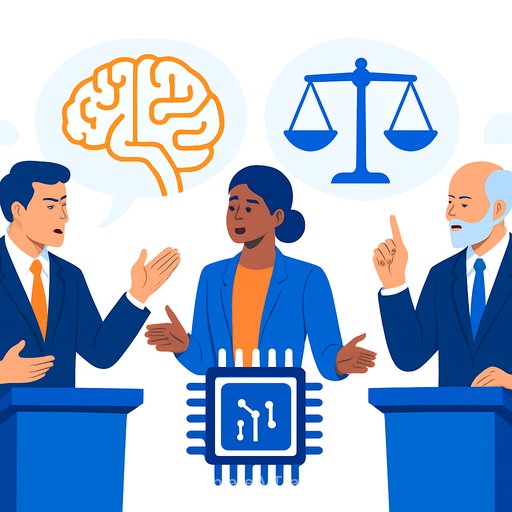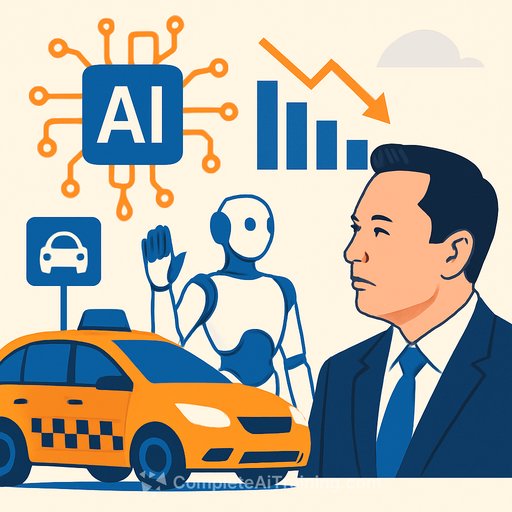AI in Hospitality: Trust Rises, Usage Trails - How Executives Close the Gap
Hotel leaders trust AI more than they use it. While executives rated AI at 6.6/10 for trust, actual reliance sits at 4.7/10. Large chains cite strategy and integration issues; independents move faster and see returns sooner.
Two recent studies, from h2c and TakeUp, benchmark how chains and independents deploy AI, what's working, and where the friction is. If you own the P&L or set strategy, the path forward is clear-select high-yield use cases, upskill teams, and standardize integration.
What Chains Are Doing Now
Based on h2c's global study of 171 chains (11,000+ properties), 78% already use AI and 89% plan to expand usage within 12-24 months. Chatbots lead current adoption at 42%. The top area of planned investment is customer data management at 50%.
The gap is strategy. Only 7% of chains have a company-wide AI strategy. That's the main driver of the trust-versus-reliance discrepancy.
- Top barriers: lack of expertise (62%), unclear strategy (51%), integration challenges (45%), budget limits (39%)
- Additional hurdles: organizational resistance (31%), data security/privacy (30%), unclear ROI (27%), data quality/access (26%)
"AI adoption in hospitality is accelerating, but most hotel chains are still experimenting," said Michaela Papenhoff, managing director of h2c. "Bridging the trust-reliance gap will require more investment in staff skills, better integration, clear ROI measurement and a focus on use cases that deliver tangible value."
Independents Move Faster-and See ROI
TakeUp's survey of 200 independent properties shows 74.5% of AI users report positive results. Most (66%) have used AI for six months to two years, with measurable returns already in hand.
- Where value shows up first: automated guest communication (16.7%), marketing campaign optimization (13.8%), dynamic pricing (12.1%)
- Why they adopt: time savings and efficiency (19.7%), cost reduction (13.1%), competitive edge (10.12%)
- Revenue lift among winners: 25.5% reported +6-10%; 35% reported +11-20%
"Independent property owners aren't just dipping their toes into AI anymore, they're diving in and using it to win," said Bobby Marhamat, CEO of TakeUp. "The fact that 74% of owners say AI has met or exceeded expectations shuts down the outdated myth that small properties can't succeed with AI."
Common Threads: Efficiency First, Human Touch Intact
Both groups aim to reduce repetitive work, gain efficiency, and elevate guest experience. Chains rate business intelligence (78%), chatbots (77%), and digital marketing (72%) as most valuable today. Independents prioritize automated guest communications (16.7%), marketing optimization (13.8%), dynamic pricing (12.1%), and energy cost reduction (12.1%).
Staff sentiment is favorable. TakeUp reports 78% of staff are somewhat or very comfortable with AI tools. Two-thirds of h2c respondents say AI frees teams for higher-value, guest-facing work.
Maintaining a personal touch remains non-negotiable. Half of chains (62% of large chains) and 74% of independents call it critical. "In hospitality, the human touch makes all the difference. Even if tasks change, humans will continue to add the most value," a chain executive said in the h2c study.
Guests Are Ready for AI-And They're Using It
Phocuswright reports that generative AI adoption among travelers continues to rise. In the U.S., 51% use GenAI overall, up from 39% in 2024 and 22% in 2023. The U.K. stands at 41%, France at 39%, and Germany at 38%.
- 33% of U.S. travelers use GenAI tools to plan trips and for in-destination support
- 22% of U.K. travelers rely on AI for trips
- 22% in France; 15% in Germany
Younger travelers lead usage: ~60% of millennials and younger in the U.S., U.K., and France; 44% in Germany. Among users, 38-55% planned at least one trip with GenAI. In the U.S., 85% trust AI to search for hotels, and up to a third of travelers across markets are open to booking through an AI assistant.
For additional context on traveler adoption, see Phocuswright's research overview here.
AI Bookings Inside Answer Engines
AI-native search is moving into transactions. Perplexity has partnered with Selfbook and Tripadvisor to enable hotel bookings within its answer experience. Expect more precise results and fewer clicks.
Perplexity leadership has also hinted at incentives (e.g., booking discounts for Pro users). Read platform updates here.
90-Day Executive Plan to Close the Trust-Usage Gap
Days 0-30: Decide and prepare
- Pick 2 high-yield use cases by segment: guest comms and marketing for independents; customer data and BI for chains.
- Audit data readiness: consent, quality, access, and integrations (PMS, CRS, CRM, marketing automation, revenue management).
- Define guardrails: privacy, bias checks, human-in-the-loop for guest-facing actions.
- Set baseline metrics and targets (see KPIs below).
Days 31-60: Pilot
- Run controlled pilots with clear success criteria and a single owner.
- Integrate with core systems via API-first vendors to avoid data silos.
- Enable staff: short training, playbooks, and escalation paths.
- Report weekly on outcomes, exceptions, and guest feedback.
Days 61-90: Scale and systematize
- Promote winning pilots to production; retire what doesn't meet targets.
- Stand up an AI working group (IT, Ops, Marketing, Revenue, Legal) with a quarterly roadmap.
- Codify vendor standards: SOC 2/ISO 27001, data residency, SSO, audit logs, rate limits, SLA.
- Launch a continuous training track for managers and front-line teams.
KPIs That Matter to Owners and Boards
- Guest communications: deflection rate to self-serve, first-response time, CSAT/NPS impact, resolution time
- Marketing: CAC, conversion rate, ROAS, list growth, campaign cycle time
- Revenue management: ADR, RevPAR, forecast accuracy, upsell/cross-sell lift
- Operations: hours saved per department, ticket backlog reduction, energy cost per occupied room
- Risk: data incidents, privacy requests SLA, model error rate
Buy vs. Build: A Simple Decision Lens
- Buy if the use case is common (chat, marketing, pricing), integration is available, and your team lacks ML engineering capacity.
- Build where you have proprietary data advantages or unique workflows that differentiate your brand experience.
- Favor modularity: API-first tools that you can swap without rewriting core systems.
From Experiments to Enterprise Integration
Chains are now exploring robotic process automation, proactive AI agents, and digital identity verification to reduce manual work and fraud. Independents are leaning into intelligent energy management, deeper guest communication automation, and advanced marketing tools.
The first movers will keep the margin. Whether you run a global group or a family-owned property, the advantage goes to leaders who set a clear strategy, invest in skills, and tie AI to measurable business outcomes before competitors do.
Upskill Your Team
If your strategy hinges on staff capability, structured learning helps. Explore role-based AI courses and certifications for hospitality teams:
Your membership also unlocks:






